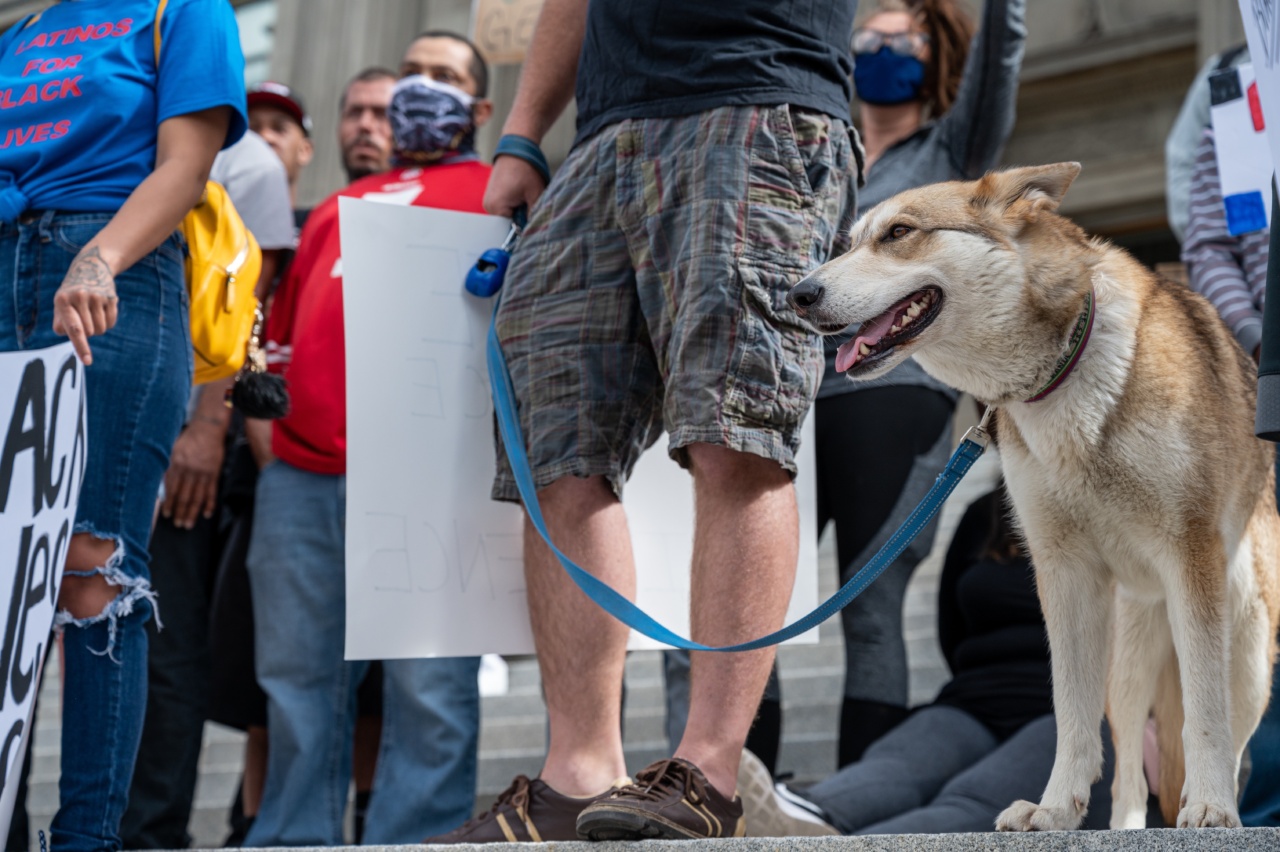Leaving a dog behind is a decision that no pet owner takes lightly. However, there are instances where circumstances may arise that make it difficult for individuals to continue caring for their furry friends.
This article explores various scenarios where leaving a dog may seem like the right choice and discusses the considerations that should be made before taking such a step.
1. Financial Constraints
One of the primary reasons why some individuals consider leaving their dogs is due to financial constraints. Owning a dog involves various expenses, including food, grooming, veterinary care, and other essentials.
If an individual is facing financial difficulties and cannot adequately provide for their pet’s needs, they might contemplate finding the dog a new home.
Before making the decision to leave a dog due to financial constraints, it is essential to explore other options. Local animal shelters or rescue organizations may be able to provide assistance, such as discounted or free pet food and veterinary care.
Additionally, reaching out to family, friends, or neighbors for temporary help can provide some relief until financial stability is regained.
2. Allergies or Health Issues
Another situation that might lead to the consideration of leaving a dog is when a family member develops allergies or health issues that are triggered by pets.
While it can be heartbreaking to part with a beloved four-legged companion, the health and well-being of the family member must take precedence.
Prior to making the decision to part with a dog, it may be helpful to consult with a medical professional who can provide advice on managing allergies or health issues.
Certain measures such as keeping the dog out of specific areas of the home, investing in air purifiers, or using allergy medications can help mitigate the symptoms. However, in severe cases where no viable solution is available, finding the dog a new home with individuals who are not affected by allergies or health issues may become necessary.
3. Relocation or Housing Constraints
Relocation can be another factor that leads to the difficult decision of leaving a dog behind. Some rental properties have strict no-pets policies, making it impractical or impossible to bring a dog along.
In such cases, finding a new home for the dog may be the only option to ensure the pet’s well-being.
Prior to relocating, it is crucial to thoroughly research potential housing options that allow pets. It may take more time and effort to find a pet-friendly rental, but it is worth searching to keep the dog as part of the family.
Additionally, reaching out to local animal shelters or rescue organizations can provide guidance and resources to help find suitable accommodations.
4. Inability to Provide Adequate Care
In some instances, individuals may find themselves unable to provide their dogs with the level of care and attention they deserve. This may happen due to changes in work schedules, personal circumstances, or unforeseen life events.
Leaving a dog may seem like the right choice in such cases, as it would enable the dog to find a home where it can receive the necessary care.
Prior to making the decision to leave a dog, alternative arrangements should be considered. Dog daycares, hiring a dog walker, or seeking assistance from trusted friends and family members can help alleviate the burden of care.
Additionally, reaching out to local rescue groups or animal welfare organizations may provide temporary foster options until the individual’s circumstances stabilize.
5. Aggressive or Dangerous Behavior
In rare circumstances, a dog may demonstrate aggressive or dangerous behavior that poses a threat to the well-being of individuals living with the dog or the community as a whole.
In such cases, leaving the dog may be the responsible choice to ensure the safety of everyone involved.
Prior to making the decision to part with an aggressive dog, professional help should be sought. A certified dog behaviorist or trainer can assess the situation and provide guidance on managing or rehabilitating the dog’s behavior.
However, if all efforts fail, finding a specialized rescue organization or shelter with the resources and experience to handle aggressive dogs may be the best course of action.
Considering the Emotional Impact
When contemplating leaving a dog, it is crucial to acknowledge the emotional impact it can have on both the owner and the pet.
Dogs form strong bonds with their human companions and may experience separation anxiety or depression if abruptly separated from their owners.
If leaving a dog becomes the only option, it is important to ensure they are placed in a caring and loving environment.
Researching potential adopters or seeking help from trusted individuals can help ensure the dog’s well-being during the transition.
Making an Informed Decision
Before deciding to leave a dog, it is crucial to evaluate all available options and consider the long-term consequences. Here are some important factors to consider:.
1. Seek Professional Advice
Consulting with professionals, such as veterinarians, dog trainers, or behaviorists, can provide valuable insights into potential solutions for the challenges faced. They can also offer advice specific to the dog’s breed and individual needs.
2. Research Rescue Organizations
When rehoming a dog becomes necessary, it is important to research and find reputable rescue organizations that will prioritize the dog’s well-being and find suitable forever homes.
3. Network and Seek Support
Reach out to friends, family, and local community members who may be able to assist temporarily or help find a suitable solution. Networking can often yield helpful resources or leads.
4. Financial Assistance Programs
Explore financial assistance programs offered by animal welfare organizations or local charities. These programs can help cover veterinary costs, food, or other essential needs for individuals facing financial hardships.
5. Temporary Foster Care
In situations where leaving a dog is temporary, consider seeking temporary foster care through local rescue organizations. This option ensures the dog is well-cared for until the owner can resume care.
Conclusion
Leaving a dog behind is a difficult decision that should not be taken lightly.
There are valid reasons why individuals may consider such a choice, including financial constraints, allergies or health issues, relocation or housing constraints, the inability to provide adequate care, or aggressive behavior. However, before making a final decision, exploring alternatives, seeking professional advice, and considering the emotional impact on both the owner and the pet is crucial.






























